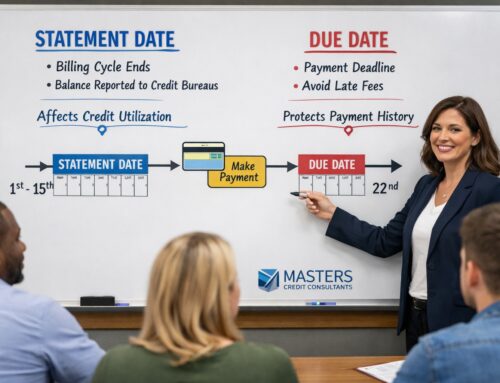
Negotiating with Creditors: Settling Your Debt and Improving Your Credit
Are you dealing with credit card debt or other types of debt that you can’t seem to get rid of?
You may have heard that one way to improve your credit score is to negotiate a debt settlement with your creditors. But how do you go about doing this, exactly?
In this blog post, we’ll provide some tips on how to negotiate with creditors and settle your debt in an effort to improve your credit.
Understand Your Rights as a Debtor
Before you begin negotiating with creditors, it’s important for you to understand your rights as a debtor. Depending on where you live, there are laws and regulations in place that protect consumers from certain behaviors from creditors—for example, certain states limit the amount of interest creditors can charge and prohibit harassing phone calls. Knowing these rights can help empower you when negotiating with creditors.
Gather Information
The next step is gathering information about what type of debt you owe and who holds it. This means obtaining your credit reports so you know exactly how much money you owe each creditor and what interest rates they are charging. It’s also helpful to gather any documents related to the debts such as loan agreements or payment histories. Make sure all the information is accurate before beginning negotiations.
What type of information should I gather to prepare to negotiate with my creditors?
When preparing to negotiate with creditors, it’s important to gather and organize the following information:
- A list of all outstanding debts, including the creditor’s name, account number, and balance due.
- Financial information, such as your income, expenses, and assets. This will help you to determine what you can afford to offer creditors as a settlement.
- Copies of your credit report, so you can review your credit history and check for any errors.
- Any relevant documents, such as proof of income, bills, and payment history.
- Information about the creditor’s policy and common negotiation tactic, which may include their willingness to negotiate, usual settlement percentage and the like.
It would be more effective if you come to negotiation well prepared with a clear settlement amount and proposal, which shows the willingness to pay, how much and in how many installments.
Negotiate With Creditors
Negotiating with creditors can be intimidating at first, but understanding your rights as a debtor, gathering accurate information about your debts, and being patient during negotiations go a long way toward achieving success.
Now comes the part where you actually contact the creditor or collection agency and start negotiating a settlement plan. Start by asking for a discount on the total balance due; many creditors are willing to accept less than what is owed if it means getting paid faster rather than waiting for full payment over time at high-interest rates. If possible, offer a lump sum payment up front instead of several payments over time; this could be more attractive to the creditor since they get their money immediately instead of having to wait for multiple payments over several months or years. Be sure to document everything during negotiations so both parties agree on all terms before making payments.
Negotiating with creditors can be intimidating at first, but understanding your rights as a debtor, gathering accurate information about your debts, and being patient during negotiations go a long way toward achieving success. With some patience and persistence, settling debts could save hundreds—or even thousands—of dollars while helping improve your credit score in the process! So don’t be afraid to negotiate; it could end up being one of the best decisions for improving your financial health!
Facts about Negotiating with Creditors Yourself
- Negotiating with creditors is a way for individuals or businesses to come to an agreement with their creditors about repaying their debts.
- Creditors may be willing to negotiate the terms of a debt, such as the interest rate or monthly payments, in order to receive some form of payment.
- The process of negotiating with creditors can be done on one’s own or with the help of a credit counseling agency or debt settlement company.
- Creditor negotiation could include a reduction in interest rate, waiving of late fees, lowering the principal balance, lengthening the payment plan etc.
- It’s important to keep in mind that negotiating with creditors does not always result in a successful outcome, and may have a negative impact on credit scores.
Worried about your credit?
You’re not alone. Millions of people are in the same boat. But don’t worry, we can help! We offer a free online credit evaluation that will show you exactly what’s hurting your credit score and how to fix it.
Once you know where you need to make improvements, our simple step-by-step guide makes it easy for you to get started on fixing your credit. Plus, our consultants are available 24/7 by phone to answer any questions you may have. Don’t wait – take action today and see an improvement in your credit score soon!
Click this link now and take our free online credit evaluation!
[wpi_designer_button slide_id=6350]
Note: The information on this website is for general purposes only and does not constitute financial or legal advice.








Leave A Comment